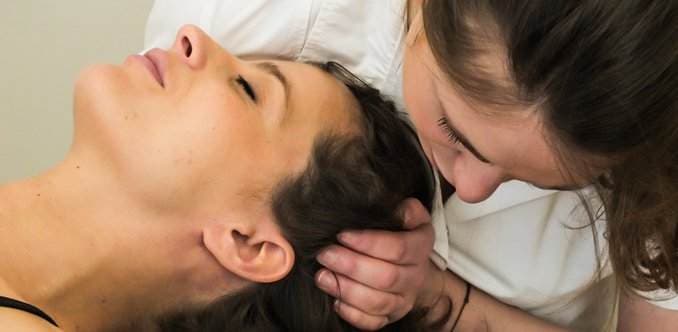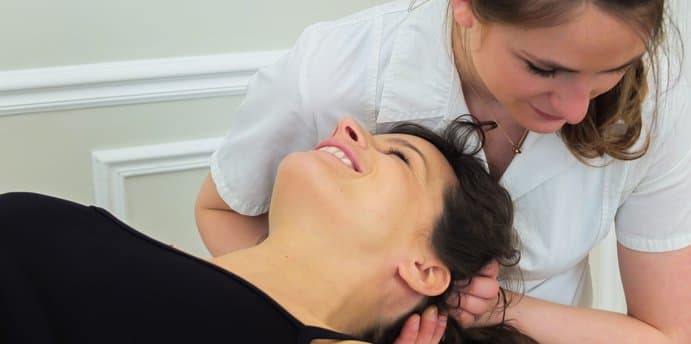Osteopathy session for adults
Osteopathy is a complementary medicine that can, in some cases, avoid chronic drug treatment and sometimes even surgery. This is why more and more general practitioners and specialists are working closely with osteopaths.

When a body suffers an accident, a fall, a trauma or a major stress, it compensates to protect itself. These adaptations can throw the body off balance and cause pain such as low back pain, sciatica, and digestive problems.
It is important to note that osteopathy has limitations like any other health practice. This is why it is crucial to choose a qualified and experienced osteopath who has the medical knowledge to treat safely.

As a practitioner trained in osteopathy and medicine, I offer consultations adapted to the age and profession of each patient in my office.
The consultation of an osteopath for adults
The consultation of an adult with an osteopath can be done without a medical prescription. However, it is preferable to talk to your general practitioner beforehand.
Remember to bring your latest complementary tests (X-rays, blood tests, etc.).
Osteopathy in adults can also relieve the following symptoms and pathologies
👁️ Ophthalmic and neural
- Recurrent conjunctivitis
- Ophthalmic migraines
- Repeated headaches
- Headaches
- Migraines
📊 Preventive / Behavioral
- Osteopathic assessment
- 1 to 2 months after surgery, to avoid scar adhesions
- Anxiety
- Stress
- Sleep disorders
- Snoring
👩🏼 Gyneco-urinary-renal
- Recurrent urinary tract infections
- Urinary leakage
- Pain during the sexual act
- Painful menstruation
- Non-regular menstruation
💪🏼 Neuromuscular
- Tendinitis
- Torticollis
- Low back pain
- Sciatica
- Back pain
- Pubalgia
- Costal pain
- Coccygodynia (coccyx pain)
- MSD (musculoskeletal disorders)
- Carpal tunnel syndrome
- Morton's Syndrome
👂🏼 ENT
- Recurrent ear infections
- Recurrent sinusitis
- Recurring sore throat
- Dizziness
- Tinnitus
- Sensation of blocked ear
- Bruxism
- Pain in the TMJ (jaw)
🥘 Digestive
- Regurgitation
- GERD (gastroesophageal reflux disease)
- Nausea
- Constipation
- Diarrhea
- Significant bloating
- Functional Colopathy